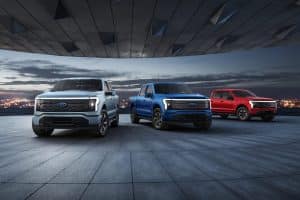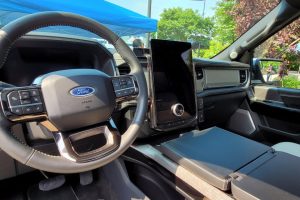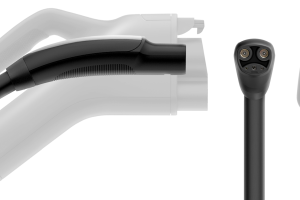Key Points
- 🔋 Panasonic Energy is announcing senior leaders for its new lithium-ion battery manufacturing facility in Kansas.
- 🏭 The facility, dedicated to 2170 cylindrical cell production, broke ground in November 2022.
- 🧑💼 Key leaders appointed for the facility include the President of PENA, leaders of Project Kansas, SVPs, and VPs in various roles.
- 💼 Allan Swan, President of Panasonic Energy of North America, expressed confidence in meeting industry demands and driving innovation with this leadership team.
- 🚗 Panasonic is focusing on 2170 and 4680 battery production for profitability and benefiting from the growing electric vehicle market in North America.
- 🤝 Panasonic has a history of affiliation with Tesla and is exploring partnerships with other automakers like Subaru.
Panasonic Energy Co., Ltd, announced the senior leadership spearheading the company’s new lithium-ion battery manufacturing facility in De Soto, Kansas.
The Japanese electric vehicle battery maker broke ground on its 30 GWh cell factory in November 2022. The Kansas-based battery manufacturing facility will be dedicated to 2170 cylindrical cell production.
The list below shows the leaders Panasonic Energy chose for the new battery production plant and their assigned positions.
- Allan Swan, PENA President, Leader of Project Kansas
- Koya Takahashi, SVP, Leader of Project Kansas
- Masafumi Sonoda, SVP of Operations
- Thomas Fickett, Chief Financial Officer
- Eduardo Campos, VP of Quality
- Innocent Chikunya, VP of Operations
- Justin Herman, VP & Chief Information Officer
- Hidetoshi Kaneko, VP of Supply Chain
- Walt Miller, VP of Operational Excellence
- Kristen Walters, VP of Human Resources
- Carl Walton, VP of Strategic Initiatives & Facilities
- Robert Winans, VP of Supply Chain
“We are delighted to announce the new leadership team for our De Soto factory,” said Allan Swan, President of Panasonic Energy of North America and Leader of Project Kansas.
“Their expertise will be instrumental in driving development and production, especially as we ramp up manufacturing of ‘2170’ cylindrical Li-ion batteries by 2025. With their support, we are confident in our ability to meet the demands of the industry and drive forward innovation while pursuing a more prosperous and sustainable future for our society,” Swan added.
In February 2023, Panasonic stated it would lean on 2170 and 4680 battery production for profitability. The company’s decision came after it missed earnings expectations. Panasonic cut its 2023 outlook by 12.5% after missing its earnings estimates.
EV battery manufacturing has become more lucrative now that automakers have embraced the transition to electric vehicles. North America is heavily investing in building supply chains for EV manufacturing, benefiting companies like Panasonic that make battery cells for electric cars.
“Focus on North America market where we can leverage advantages (high capacity) with established strong business foundation; Achieve profit growth by expanding sales of 2170 cells and commercializing 4680 cells,” noted the Japanese battery supplier during its last earnings call.
Panasonic has been affiliated with one of the biggest brands in the EV market for years now: Tesla. It seems to be open to partnering with other automakers as well. Last month, the Japanese supplier discussed the possibility of a a medium- to long-term partnership with Subaru.





